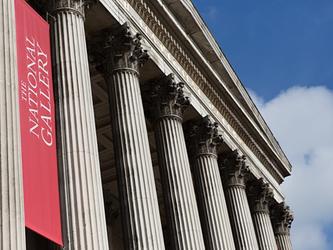‘Making sure voices are heard’: using data to build an inclusive society
Conducting inclusive research is about using rigorous methodology to ensure data is accurate and representative, explained YouGov project manager Chantel Le Carpentier during a presentation at the event, which was held at IPG Mediabrands offices in London.
Research that is both accurate and representative, said Le Carpentier, “gives clients the power to serve the people they represent better”.
For example, YouGov conducted research on sex-specific cancers – prostate and cervical cancer – that had to be inclusive of trans people. “If you were assigned male at birth, you are at risk of prostate cancer. If trans women were not in the room, their voices would have been lost,” she said.
Out of a survey of 4,000 people, 52 said they were trans. “That’s 52 people that would have answered inaccurately, and whose voices wouldn’t have been heard.” Le Carpentier added: “It’s about challenging the way we conduct research to fit the standard human – the straight white man. It’s about making sure voices are heard.”
During a panel discussion at the event, Jan Gooding, president of the MRS, chair of Stonewall and PAMCo and former global inclusion director at Aviva, discussed the need for surveys to be trans inclusive.
On a recent PAMCo survey, the numbers of trans respondents were quite small, said Gooding – “so then you get into this statistical significance discussion”. However, she said: “That’s not the point. The point is to demonstrate that this is an inclusive survey and it’s a choice whether people reveal their identity – you’re being courteous; it’s simply a question of manners.”
Gooding also stressed the importance of senior people within organisations educating themselves and being confident in this area. “It’s important for everyone, including allies, to get yourself educated about trans issues and LGB issues. Because unless you are assertive, it will always feel like the numbers are so small, and it’s too difficult, and [you think] ‘let’s just do it the way we’ve always done it’.”
Also speaking on the panel, Bethan Blakeley, director at Honeycomb, recalled the experience of working with a client who wanted to screen people out of the survey if they weren’t male or female, as it wanted a 50/50 split. She said: “I went to my senior leadership ally at the time and said: ‘I am not dropping this, I am not running this survey with this question like this’.” They then conducted additional desk research to explain to the client why it was a bad idea.
On the subject of brands using the Pride flag and rainbow colours in their communications, the panel discussed Marks & Spencer’s LGBT sandwich which was viewed by some in the community to have missed the mark. However, Gooding said: “We must be kind when people are trying – in their clumsy way – to do something which says ‘we’re on your side’.”
Joshua Graff, UK country manager and vice-president of EMEA and LATAM at LinkedIn, said: “Brands are understandably quite risk-averse today – that doesn’t mean you shouldn’t take risks but you should take calculated and intelligent risks. One of the ways to do that is to ensure that you have a diverse team creating those programmes and involve the likes of Stonewall and other organisations. There’s still the possibility you could royally screw it up, but if you’ve got representation internally and you’re pulling in the right experts, it’s a risk worth taking.”
Although there is plenty of existing evidence supporting the business case for inclusive advertising, Mark Runacus, president of PrideAM, said results are still key to demonstrating effectiveness in appealing to mainstream audiences (for instance, McCain’s ‘We Are Family’ campaign). “We need the results, we need case histories. I sense that people are coming up with excuses not to run LGBT campaigns, so I think we need to work harder.”
Also at the event, Michael Brown, head of insight at UM, outlined results of the company’s research on how queer women are represented in media. The research found that 92% of women who define as queer feel that they are negatively stereotyped in the media.
How can workplaces be more inclusive?
Companies as allies and using your voice
From a business perspective, leaders must make people feel safe, says Gooding: “Companies need to come out as allies before anyone else can come out as who they are.” But everyone can work to make their workplace more inclusive by speaking up. “Speak up for someone else – the most difficult thing is when other people are suffering (perhaps because of something that’s being said). Unless somebody says something, it’s never going to change. Lending your power to pull up someone else is the best thing.”
Embedding values
Companies should start with their employees, said Graff. “They’re often your most vocal ambassadors – or detractors, if something goes wrong. Think about your culture, your values, and understand whether they’re embedded in everything you do on a daily basis or just something you write on the wall. The more a company can codify its culture and values, talk about them and ensure that they’re part of the performance process, the more inclusive employees will feel.”
Practical solutions
“Something really simple that we could all change tomorrow is to put preferred pronouns at the bottom of our email signature,” said Blakeley. “It doesn’t cost any money, but it enables your clients, suppliers and colleagues to understand that it is an inclusive environment and remove some of those awkward gaps.”
Role models
“You should have BAME role models, LGBT role models in place and you should support them,” said Runacus. However, “you’ve got to remember, not everybody wants to be a role model.” A small change, he adds, is having gender-neutral toilets. “It’s the little things, but it’s the big things too.”
#MRSpride is a network established to support and connect LGBT talent in the market research industry. The launch event was sponsored by YouGov and hosted by IPG Mediabrands.

We hope you enjoyed this article.
Research Live is published by MRS.
The Market Research Society (MRS) exists to promote and protect the research sector, showcasing how research delivers impact for businesses and government.
Members of MRS enjoy many benefits including tailoured policy guidance, discounts on training and conferences, and access to member-only content.
For example, there's an archive of winning case studies from over a decade of MRS Awards.
Find out more about the benefits of joining MRS here.





[crop:592x444+0+0;h:250;q:75;id:2913753].jpg)








0 Comments